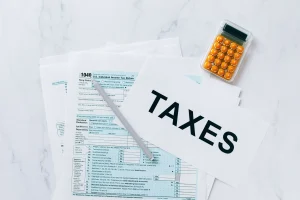
For the uninitiated, income tax is the money taken from an employee’s wages. Most state governments and some localities collect income tax. The laws governing the federal income tax are set by the Internal Revenue Service (IRS). Each employee is required to pay a specific amount of income tax, depending on their personal elections and wages. Employers must withhold the appropriate amount of tax from the wages of their employees and remit it to the IRS. To find out which tax authority in your area is responsible for collecting and remitting income tax, visit the government’s directory.
The Financial Year is the time period governing Income Tax laws. The financial year runs from the first April of each calendar year until the end of March of the following year. The income earned during this period is calculated under the Financial Year. Taxpayers must file their income taxes within that time period. However, some people choose to work under the umbrella of a business or freelancer to avoid paying income tax. This is a risky endeavor, especially for those with limited knowledge of the law.
In addition to the basic exemption limit, individuals are expected to pay income tax if they earn more than the basic exemption threshold. Whether an individual is self-employed or owns an entire property, the Income Tax Department is expected to collect direct tax for the Government of India. Even those under the age of 60 are subject to income tax. The higher their income, the more they are required to pay, but if you’re earning more than that, it’s better to pay.
As long as an individual can maintain a proper book of accounts, they can maximize the amount of income tax savings they can receive. By making sure to declare all sources of income, you’ll avoid the risk of being labeled a tax evader. You should also fill out the Form 26AS to show what types of taxes have been deducted from their income. This form is issued under section 203AA of the Income Tax Act, 1961.
In addition to wages, income tax is also collected on dividends and interest from investments. Additionally, income tax is collected on investment income, such as dividends, lottery winnings, and fees paid for jury duty. However, there are some exceptions to this rule. Some exemptions to income tax include scholarships and workers compensation, which are nontaxable. There are also exceptions to income taxation in other states. These are listed below. If you have questions about income taxation, feel free to contact us!
Income taxation is a vital part of the tax system. If you’re self-employed, you’re likely to pay income tax on it. In Canada, there is a graduated tax system for individual income, which means that you’ll pay more tax as you increase your income. In addition, the federal tax rate varies depending on your income level and provinces. It’s worth checking the latest rates online. If you’re unsure whether you need to pay taxes on self-employment income, you should consult the tax code of the province in which you’re working.







